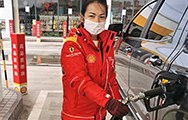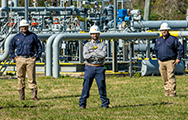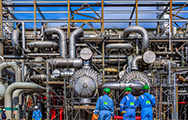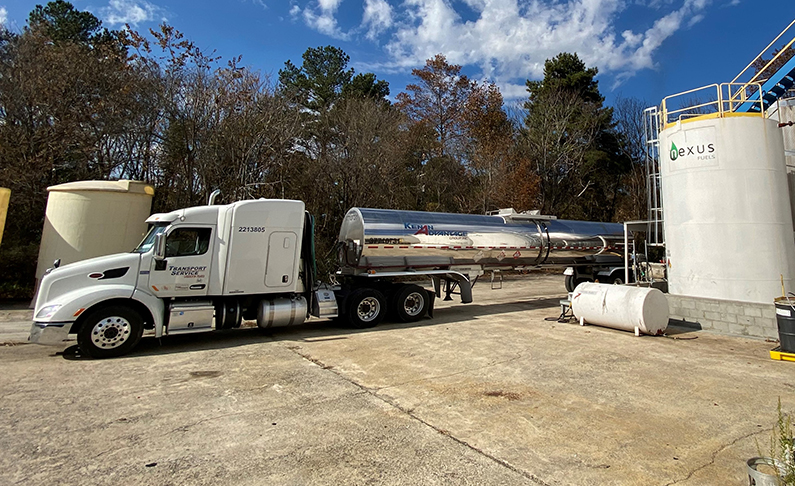Respecting human rights
Our approach to human rights
Human rights are fundamental to Shell’s core values of honesty, integrity and respect for people, and critical to being trusted, valued and supported by society. We focus on four areas where human rights are essential to how we work and where we see the highest risk for a potential impact on human rights: communities, security, labour rights and supply chains.
Our approach is informed by the UN Universal Declaration of Human Rights, the International Labour Organization Declaration on Fundamental Principles and Rights at Work, and the UN Guiding Principles on Business and Human Rights. Human rights due diligence is embedded into our existing processes and frameworks, such as the Health, Safety, Security, Environment and Social Performance Control Framework. It applies to all our employees and contractors.
Approach to human rights
Approach to human rights
Worker welfare
In 2020, we continued to take steps to improve our approach to human rights. This included launching a worker welfare manual which will help to better identify and manage worker welfare risks we face in high-risk countries. The manual builds on our previous work in this area and sets principles for our businesses to start implementing in 2021.
We worked closely with Building Responsibly, a group of leading engineering and construction companies, to promote their Worker Welfare Principles, standards and guidance across our businesses and with our contractors. Along with IPIECA, the global oil and gas industry association for advancing environmental and social performance, and the International Association of Oil & Gas Producers (IOGP), we are working to promote worker welfare across the energy industry as a whole.
In 2020, we joined the UN Global Compact Action Platform on Decent Work in Global Supply Chains to work with companies and non-governmental organisations to improve human rights and labour rights in global supply chains. This supports our efforts to promote decent work and economic growth, Goal 8 of the UN Sustainable Development Goals.
We also stepped up our efforts to maintain healthy working conditions and worker accommodation in response to the COVID-19 pandemic. We developed detailed guidelines aimed at minimising the potential impact of the pandemic on worker welfare and ensuring that Shell companies continued to meet our standards.
Listening to communities
The community feedback mechanisms we have implemented in our major operations and projects enable us to receive, track and respond to questions and complaints from community members (see Engaging communities). We continually assess and look for ways to increase their effectiveness in providing communities with access to remedy. Our approach for these assessments is informed by the UN Guiding Principles on Business and Human Rights.
In 2020, we strengthened our community feedback mechanisms to help ensure that we treat community feedback consistently across our operations, respect anonymity and allow communities to pursue other options if they disagree with the outcome of a complaint.
Learn more about our human rights policies and focus areas at www.shell.com/human-rights
Modern slavery
Shell is opposed to all forms of modern slavery. Such exploitation is against our commitment to respect human rights as set out in the UN Universal Declaration of Human Rights and the International Labour Organization’s Declaration on Fundamental Principles and Rights at Work.
We continually work to safeguard human rights in all aspects of doing business and have embedded human rights in our Shell General Business Principles, Code of Conduct and Shell Supplier Principles.
Tackling modern slavery
Governments and regulators are increasing their focus on human rights in supply chains. For example, the Australian and UK governments require companies to explain the actions they take to assess, identify and reduce the risk of modern slavery in their supply chains.
We publish a statement under the UK Modern Slavery Act 2015 annually, setting out the steps we have taken against modern slavery in our business and supply chains. We will make our first statement under the Australian Modern Slavery Act in mid-2021. Governments including Canada and Norway are also considering regulations.
We are currently well positioned to deliver these regulatory statements and to act when needed. For instance, in response to the outbreak of COVID-19 in Australia, we worked to ensure that our main personal protective equipment supplier and its sub-suppliers for the country complied with labour and human rights requirements.
Read more about our approach in our statement under the UK Modern Slavery Act at www.shell.com/uk-modern-slavery-act
Security practices
We continually seek to improve how we manage security risks to help protect our employees, contractors, fence-line communities and the environment.
We work to maintain the safety, security and human rights of our employees, contract staff and local communities. The Voluntary Principles on Security and Human Rights (VPSHR) are implemented across Shell where there are identified threats of infraction.
We include VPSHR and use-of-force clauses in our private security contract template and raise the principles in engagements with public security forces. We carry out annual risk assessments and develop plans to manage the identified risks.
Training and awareness briefings are carried out with the security forces that we rely on in our implementation countries. We annually report on our implementation of the VPSHR in this report. In line with our guidelines, we undertake assurance reviews of our implementation annually and work with country teams to assess our implementation.
Visit www.shell.com/sustainability/transparency/human-rights for more on our approach to human rights and security. Read more about our implementation of the VPSHR at www.shell.com/vpshr
Internal voice

Toye Fatoki
Shell Nigeria
Toye is the intelligence and external relations manager at the Shell Petroleum Development Company of Nigeria Limited.
“Shell companies in Nigeria have been implementing the Voluntary Principles on Security and Human Rights for more than 20 years. The principles help us identify security-related human rights risks and ways we could address them.
“We work closely with Nigeria government security agents, who are vital to safeguarding our operations. We provide regular briefings on the principles to help agents who support our activities in their interactions with our staff and contractors, and local communities.
“In 2020, we took steps to help stop the spread of COVID-19 and ensure we continue to meet our responsibilities under the principles. Together with agents we developed new working procedures in line with national COVID-19 regulations and issued guidance on upholding the rule of law while respecting human rights and keeping agents and others safe. We also adjusted work patterns and the number of personnel rotations to reduce risks for agents.”




